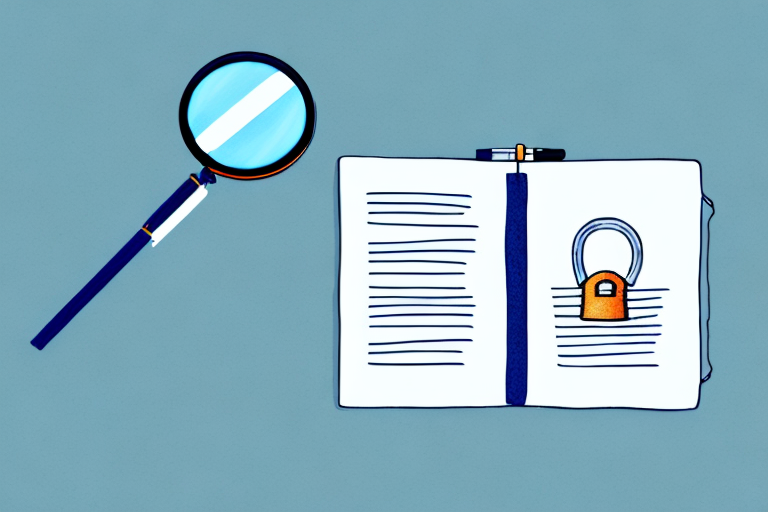In today’s digital age, data privacy compliance has become a critical concern for organizations worldwide. Not only are companies required to protect the personal data of their customers and employees, but they must also navigate and adhere to international sanctions regulations. Failure to comply with these laws can lead to severe consequences, including significant financial penalties and damage to a company’s reputation. To ensure effective and comprehensive compliance, organizations must develop and implement a robust sanctions data privacy compliance checklist.
Understanding the Importance of Data Privacy Compliance
Data privacy compliance is crucial for organizations as it safeguards the personal information of individuals. With the increasing reliance on digital platforms and the volume of data exchanged daily, protecting personal data has become a significant concern. Compliance with data privacy regulations ensures that companies handle personal information responsibly and transparently, promoting trust and confidence among their customers and stakeholders. Additionally, data privacy compliance is a legal requirement in many jurisdictions, and failure to comply can result in severe consequences. Therefore, organizations must prioritize data privacy and establish comprehensive compliance measures.
Implementing data privacy compliance measures not only protects individuals’ personal information but also helps organizations mitigate the risk of data breaches and cyberattacks. By adhering to data privacy regulations, companies can identify and address vulnerabilities in their systems and processes, enhancing their overall cybersecurity posture. Moreover, data privacy compliance fosters a culture of accountability and ethical data handling within organizations, ensuring that data is collected, stored, and processed in a manner that respects individuals’ rights and privacy preferences. By prioritizing data privacy compliance, organizations can not only avoid legal penalties but also strengthen their reputation and build long-term customer loyalty.
Overview of Sanctions and Data Privacy Laws
Sanctions laws are international regulations that restrict certain activities with specific countries, organizations, or individuals. These laws are imposed to promote national security, prevent terrorism, discourage human rights abuses, and address geopolitical concerns. On the other hand, data privacy laws govern the collection, use, and protection of personal data. These laws vary across jurisdictions, with notable examples including the European Union’s General Data Protection Regulation (GDPR) and the California Consumer Privacy Act (CCPA). Understanding and complying with both sanctions and data privacy laws are vital for organizations operating in multiple jurisdictions to avoid legal and reputational risks.
Organizations that fail to comply with sanctions laws may face severe consequences, including financial penalties, loss of business opportunities, and damage to their reputation. Violations of data privacy laws can also result in significant penalties, such as fines and legal actions. It is crucial for organizations to establish robust compliance programs that address both sanctions and data privacy requirements. This includes implementing effective internal controls, conducting regular risk assessments, and providing ongoing training to employees. By prioritizing compliance with both sanctions and data privacy laws, organizations can protect themselves from legal and reputational risks while maintaining the trust of their customers and stakeholders.
Key Components of a Data Privacy Compliance Checklist
A comprehensive data privacy compliance checklist should encompass various key components to ensure full compliance. These components include:
- Developing clear data privacy policies and procedures
- Implementing data protection measures, such as encryption and access controls
- Establishing consent mechanisms for data processing activities
- Managing cross-border data transfers in compliance with sanctions laws
- Training employees on data privacy responsibilities and best practices
- Conducting regular risk assessments to identify and mitigate potential breaches
- Maintaining records to demonstrate compliance with sanctions and data privacy regulations
- Establishing effective incident response plans for potential violations
By addressing these key components, organizations can ensure a comprehensive approach to data privacy compliance.
Ensuring Compliance with International Sanctions Regulations
Complying with international sanctions regulations requires organizations to have a firm understanding of the laws that apply to their operations. It involves ongoing monitoring of sanctions lists and compliance updates issued by relevant authorities, such as the United States Office of Foreign Assets Control (OFAC) or the European Union’s sanctions regimes. Organizations must screen their customers, partners, suppliers, and stakeholders against these lists to ensure they do not engage in prohibited activities. Implementing robust due diligence procedures is essential to identify any potential risks and ensure full compliance with international sanctions regulations.
Conducting a Comprehensive Data Privacy Audit
A data privacy audit serves as an essential tool to assess an organization’s compliance with data privacy laws. It involves a thorough review of data processing activities, data protection measures, consent mechanisms, data transfer protocols, and record-keeping practices. The audit should identify any gaps or non-compliance with applicable laws and regulations. By conducting regular data privacy audits, organizations can proactively address any shortcomings and continually improve their data privacy compliance efforts.
Implementing Robust Data Protection Policies and Procedures
Developing and implementing robust data protection policies and procedures is critical for maintaining compliance with data privacy laws. These policies should outline how an organization collects, uses, and handles personal data. They should also address data retention, security measures, data subject rights, and breach response protocols. By establishing clear and comprehensive data protection policies and procedures, organizations demonstrate their commitment to protecting personal data and complying with data privacy regulations.
Securing Personal Data through Encryption and Access Controls
Data security is an integral part of data privacy compliance. Organizations must implement technical and organizational measures to protect personal data from unauthorized access, disclosure, alteration, or destruction. Encryption is a widely recognized method for securing personal data, ensuring that it remains unreadable and useless if intercepted by unauthorized parties. Access controls, such as strong authentication mechanisms and role-based permissions, help ensure that only authorized individuals can access and process personal data. By employing robust security measures, organizations can significantly reduce the risk of data breaches and enhance data privacy compliance.
Establishing Consent Mechanisms for Data Processing Activities
Obtaining consent from individuals for the processing of their personal data is a fundamental requirement of data privacy laws. Organizations must ensure that the consent they obtain is freely given, specific, informed, unambiguous, and revocable. Consent mechanisms should be clearly communicated to individuals, and organizations must maintain records of consent for future reference. By establishing proper consent mechanisms, organizations can demonstrate compliance with data privacy regulations and build trust with individuals.
Managing Cross-Border Data Transfers in Compliance with Sanctions Laws
Cross-border data transfers often involve compliance challenges, especially in jurisdictions with strict data privacy and international sanctions regulations. Organizations must ensure that personal data is transferred in compliance with these laws. This may involve entering into data transfer agreements, implementing appropriate safeguards, or relying on specific legal mechanisms, such as the European Union’s Standard Contractual Clauses (SCCs). By carefully managing cross-border data transfers, organizations can avoid legal pitfalls and ensure compliance with both data privacy and sanctions laws.
Training Employees on Data Privacy Responsibilities and Best Practices
Employees play a crucial role in upholding data privacy compliance within organizations. It is essential to train employees on their data privacy responsibilities and best practices. Training should cover topics such as data protection principles, secure data handling, recognizing and reporting potential breaches, and understanding the impact of non-compliance. By fostering a culture of data privacy awareness and providing ongoing training, organizations can significantly mitigate the risk of data privacy breaches and enhance overall compliance.
Conducting Regular Risk Assessments to Identify and Mitigate Potential Breaches
Risk assessments are a vital component of data privacy compliance efforts. They help an organization identify, assess, and manage potential risks and vulnerabilities. By conducting regular risk assessments, organizations can proactively address any weaknesses in their data privacy processes and implement appropriate measures to mitigate potential breaches. This proactive approach demonstrates a commitment to continuous improvement and compliance in an ever-evolving data privacy landscape.
Maintaining Records to Demonstrate Compliance with Sanctions and Data Privacy Regulations
Organizations must maintain comprehensive records to demonstrate their compliance with both sanctions and data privacy regulations. These records should include policies, procedures, consent forms, data transfer agreements, risk assessments, training records, incident response plans, and any other relevant documentation. By maintaining thorough records, organizations can readily demonstrate their commitment to compliance and respond effectively to any regulatory inquiries or audits.
Responding to Data Breaches and Reporting Obligations in a Timely Manner
Data breaches can occur despite a robust data privacy compliance program. It is crucial for organizations to have well-defined incident response plans in place to ensure timely and effective response to breaches. In the event of a data breach, organizations must assess the scope and impact, mitigate any further damage, notify affected individuals and regulatory authorities as required by law, and take appropriate remedial actions. By responding to data breaches promptly and transparently, organizations can minimize the impact on individuals and demonstrate their commitment to protecting personal data.
Collaborating with Third Parties to Ensure Data Privacy Compliance
Organizations often collaborate with third-party service providers, vendors, or partners that may have access to personal data. It is essential to establish robust data protection agreements and perform due diligence on these third parties to ensure they adhere to data privacy compliance standards. By selecting trustworthy and compliant partners and maintaining open lines of communication, organizations can minimize the risk of data breaches and protect personal data throughout the business ecosystem.
Implementing Effective Incident Response Plans for Potential Violations
Despite best efforts, organizations may face potential violations of both sanctions and data privacy laws. Implementing effective incident response plans is crucial to manage these situations. Incident response plans should outline the steps to be taken in case of violations, including reporting to regulatory authorities, conducting internal investigations, and implementing remedial actions. By having a well-prepared incident response plan in place, organizations can minimize the impact of violations and take appropriate measures to prevent recurrence.
Staying Up-to-Date with Evolving Sanctions and Data Privacy Laws
Sanctions and data privacy laws are continually evolving, driven by technological advancements, geopolitical changes, and emerging risks. Organizations must stay informed about changes in relevant laws and regulations and adapt their compliance measures accordingly. This may involve regular monitoring of regulatory updates, engaging external legal counsel or compliance experts, and participating in industry forums or associations. By staying up-to-date with evolving sanctions and data privacy laws, organizations can ensure ongoing compliance and effectively manage regulatory risks.
Building a Culture of Compliance: Promoting Accountability and Transparency
Ultimately, achieving effective sanctions data privacy compliance requires organizations to establish a culture of compliance throughout their operations. This includes promoting accountability and transparency in data privacy practices, starting from the top with board and senior management commitment. By embedding compliance as a core value and fostering a culture of ethical behavior, organizations can create a strong foundation for long-term compliance success.
In conclusion, a sanctions data privacy compliance checklist plays a crucial role in ensuring organizations meet their legal obligations while protecting the personal data of their customers and employees. By understanding the importance of data privacy compliance, addressing key components of the checklist, and staying up-to-date with evolving regulations, organizations can enhance their data privacy practices and minimize the risk of non-compliance. With a focus on building a culture of compliance and employing effective incident response plans, organizations can safeguard personal data, protect their reputation, and maintain trust among their stakeholders in an increasingly complex and interconnected world.







